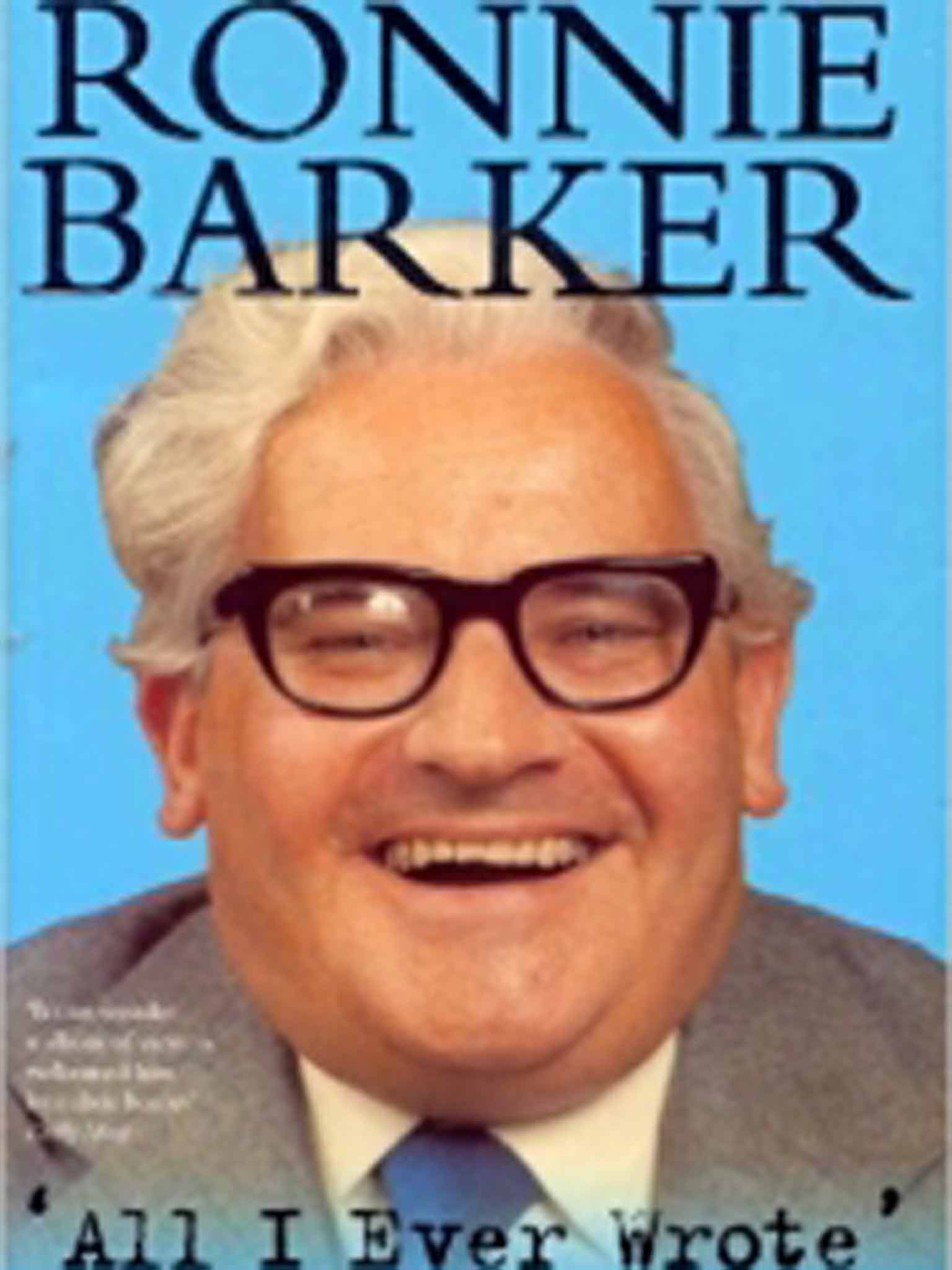All I Ever Wrote: The Complete Works by Ronnie Barker - book review: Timeless comedy sketches from a dazzling wordsmith
The best stuff is timeless, relying on Barker's facility for dazzling wordplay

Your support helps us to tell the story
From reproductive rights to climate change to Big Tech, The Independent is on the ground when the story is developing. Whether it's investigating the financials of Elon Musk's pro-Trump PAC or producing our latest documentary, 'The A Word', which shines a light on the American women fighting for reproductive rights, we know how important it is to parse out the facts from the messaging.
At such a critical moment in US history, we need reporters on the ground. Your donation allows us to keep sending journalists to speak to both sides of the story.
The Independent is trusted by Americans across the entire political spectrum. And unlike many other quality news outlets, we choose not to lock Americans out of our reporting and analysis with paywalls. We believe quality journalism should be available to everyone, paid for by those who can afford it.
Your support makes all the difference.Quiz question: what's the link between the comedy scriptwriters Gerald Wiley, Jonathan Cobbold and Bob Ferris? Answer: they're all noms de plume of Ronnie Barker, one of British comedy's towering figures.
Wanting them to be judged on their own merits, Barker, who died in 2005, famously submitted scripts to Frost on Sunday in the late 1960s as Wiley, including three of the best-known sketches of those socially shifting times, the "Three Classes" pieces, which featured John Cleese, Barker and Ronnie Corbett as representatives of the upper, middle and lower strata of British society.
Tom Stoppard, Alan Ayckbourn, Frank Muir, even Noël Coward, were all touted as the man behind the pen-name, and when Barker stood up at a dinner for cast and crew to reveal himself, no one believed him.
The golden age of "Gerald Wiley", though, was The Two Ronnies, which ran for 94 episodes between 1971 and 1987, and has enjoyed an enduring afterlife in repeat-Valhalla ever since. The scripts Barker delivered for it make All I Ever Wrote... worth buying for them alone.
A script in any genre can give only a limited impression of what the finished product was like, but that's especially so in comedy, in which so much may rely on an expression, a glance or a gesture. Often, reading All I Ever Wrote, a first impression of a sketch is: "this isn't all that funny", before then imagining Barker and Corbett working their physical magic on it (as for pieces like the largely silent film Futtock's End, they really do need to be seen to be appreciated).
In The Two Ronnies there were touches of rather dated seaside-postcard smut, but the best stuff is timeless, relying on Barker's facility for dazzling wordplay. The "Four Candles/Fork Handles" sketch is the best-known, but also of the highest quality are pieces that rely, for example, on rhymes (the brilliant "The Case of Mrs Mace"), assonance ("About a bout") and word order ("An Ear in Your Word").
This may be the perfect present for Barker completists, but the rest of us may wonder if "Quite a Lot of What I Wrote: The Selected Works" may have been a better working title. The sitcom Clarence (written as Bob Ferris), about a myopic removal man, thankfully didn't go beyond one series, while his final piece, the play Mum, which he wrote for his actress daughter Charlotte, is frankly awful.
But that and other misses are not what Barker the writer will be remembered for. His Two Ronnies scripts helped make it one of the highest points of British television comedy, and it's good to have them on paper.
Join our commenting forum
Join thought-provoking conversations, follow other Independent readers and see their replies
Comments